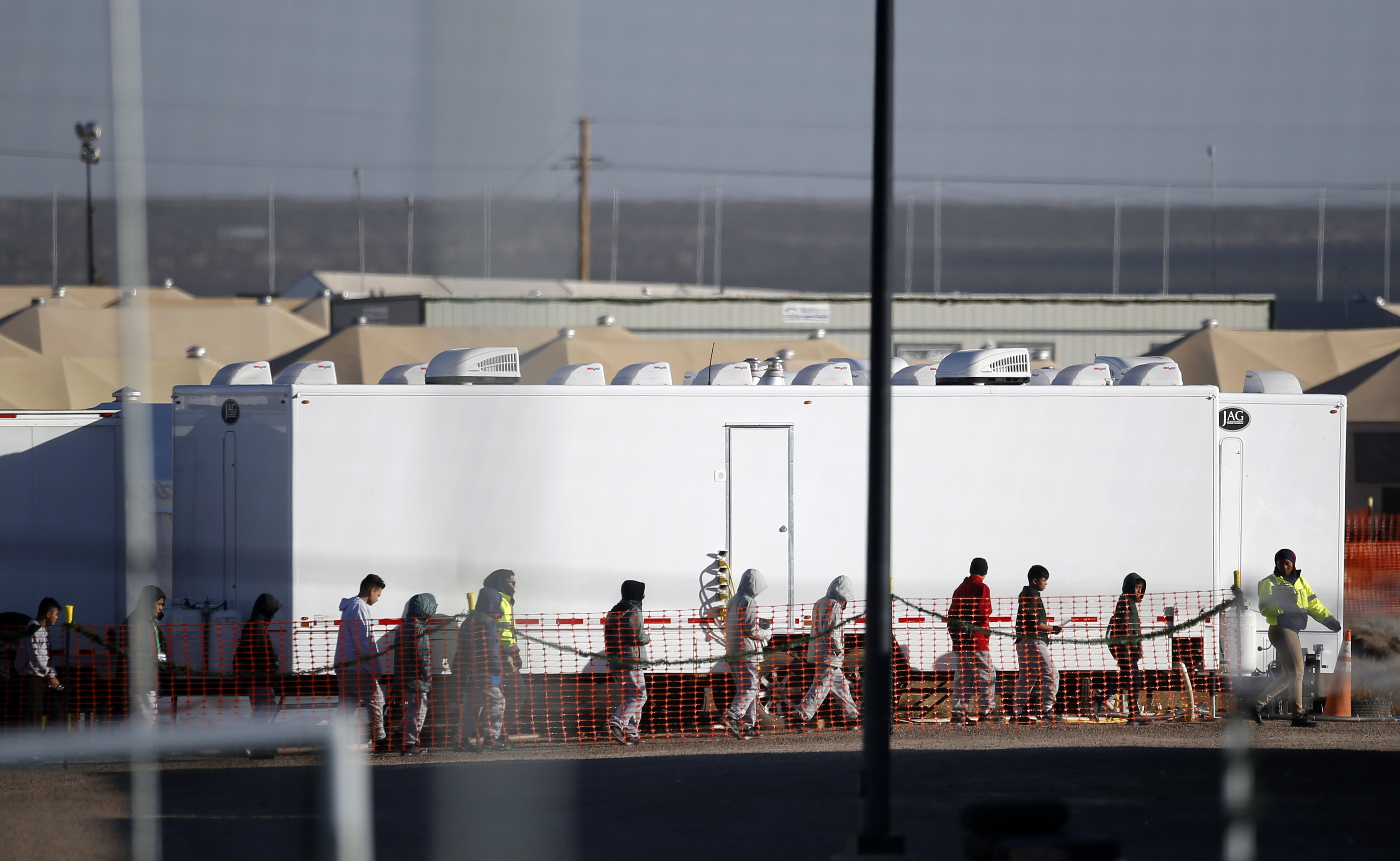Hundreds of Migrant Kids in Government Shelters Are Put on Psychotropic Drugs, Says a Watchdog Report

Credit to Author: Gaby Del Valle| Date: Wed, 18 Sep 2019 19:19:14 +0000
Approximately 1 out of every 30 migrant kids in government-run shelters are on psychotropic medications, according to a report by a government watchdog — and many of those children appear to have been medicated without their parents’ consent.
Those details came to light in a Wednesday congressional hearing where Health and Human Services officials were questioned on the mental health aspects of keeping migrant children in shelters for prolonged periods of time. Ann Maxwell, the assistant inspector general for HHS, told members of the House Appropriations committee that her agency’s inspectors didn’t know how many children arrived in the U.S. already on medication.
“We do not have those specifics,” Maxwell said. “We were talking to their case managers and medical coordinators that described those medications, and we have the statistics about who is taking medications in care — and as you mentioned, it was about 1 in 30, about 300 children in the 45 facilities we visited, were on those drugs.”
Those children received medications including Prozac, Zoloft, and Lexapro to address things including anxiety, depression, panic attacks, suicidal ideation, post-traumatic stress disorder, and insomnia, according to the report. The report also found that the longer children were kept in these shelters while their case managers worked to unite them with their families or sponsors, the more likely they were to exhibit symptoms of depression and anxiety. In November 2018, the average length of stay in ORR shelters reached a high of 93 days, though it has gone down considerably since then and was 48 days as of April. There were roughly 10,000 children in ORR shelters as of late July, though that figure changes frequently as some are released to their families and others arrive in the U.S.
It’s possible that some children in the custody of the Office of Refugee Resettlement, the agency under HHS that oversees the network of shelters for child migrants, were given those drugs against their will.
In 2018, Reveal News reported that children at the Shiloh Treatment Center, an ORR shelter in Houston, were allegedly held down and forcibly injected with drugs. A lawsuit filed on behalf of the children there alleged that shelter staff told children they wouldn’t be released to their families unless they took the medication. The lawsuit also claims that although the children were told the drugs they were being given were vitamins, the medications left them unable to walk, afraid of people, and constantly tired.
Children at the Homestead shelter in south Florida also claimed they were given “pills” for psychological issues, and said they weren’t always told what the medications they were taking were. Ryan Matlow, a Stanford psychologist who visited the facility, filed a motion saying he saw “clear and ongoing psychological harm” to the children there.
At the Wednesday hearing, Rep. Lucille Roybal-Allard asked whether children who developed a dependency on these medications received any form of government assistance after being released from government custody and reunited with their families.
“Different sponsors will have different degrees of family access to the health care system,” said Jonathan White, the commander of HHS’s Public Health Service Commissioned Corps. “We in HHS do not fund ongoing access to healthcare — we’re not appropriated to fund ongoing access to healthcare for discharged minors. Minors are discharged with a supply of medication, a referral to services in the community, and part of the case management plan with the sponsor and the child is to identify how they will get those needs met in the future.”
Cover: In this Dec. 13, 2018 file photo migrant teens walk in a line through the Tornillo detention camp in Tornillo, Texas. The nonprofit group running what was once the nation’s largest detention camp for migrant children confirmed it is closing down the facility and the last kids left on Friday, Jan. 11, 2019. (AP Photo/Andres Leighton, file)
This article originally appeared on VICE US.